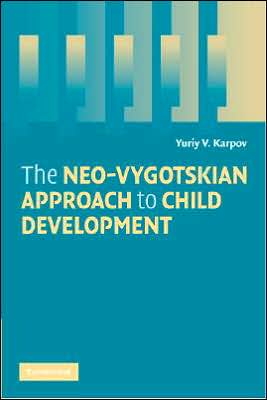

 |

|

Sold Out
Sold Out
Book Categories |
Introduction: the problem of determinants and mechanisms of child development; 1. Vygotsky's approach to child development; 2. The neo-Vygotskian elaboration of Vygotsky's approach to child development; 3. First year of life: emotional interactions with caregivers as the leading activity of infants; 4. Second and third years of life: object-centered joint activity with adults as the leading activity of toddlers; 5. Three to six-year-olds: sociodramatic play as the leading activity during the period of early childhood; 6. The period of middle childhood: learning at school as children's leading activity; 7. The period of adolescence: interactions with peers as the leading activity of adolescents; 8. Conclusion - the neo-Vygotskian approach to child development: accomplishments and shortcomings.
Login|Complaints|Blog|Games|Digital Media|Souls|Obituary|Contact Us|FAQ
CAN'T FIND WHAT YOU'RE LOOKING FOR? CLICK HERE!!! X
 You must be logged in to add to WishlistX
 This item is in your Wish ListX
 This item is in your CollectionThe Neo-Vygotskian Approach to Child Development
X
 This Item is in Your InventoryThe Neo-Vygotskian Approach to Child Development
X
 You must be logged in to review the productsX
 X
 X

Add The Neo-Vygotskian Approach to Child Development, Russian followers of Vygotsky have expanded his ideas into a theory that integrates cognitive, motivational, and social aspects of child development—emphasizing the role of children's activity as mediated by adults in their development. This theory has be, The Neo-Vygotskian Approach to Child Development to the inventory that you are selling on WonderClubX
 X

Add The Neo-Vygotskian Approach to Child Development, Russian followers of Vygotsky have expanded his ideas into a theory that integrates cognitive, motivational, and social aspects of child development—emphasizing the role of children's activity as mediated by adults in their development. This theory has be, The Neo-Vygotskian Approach to Child Development to your collection on WonderClub |